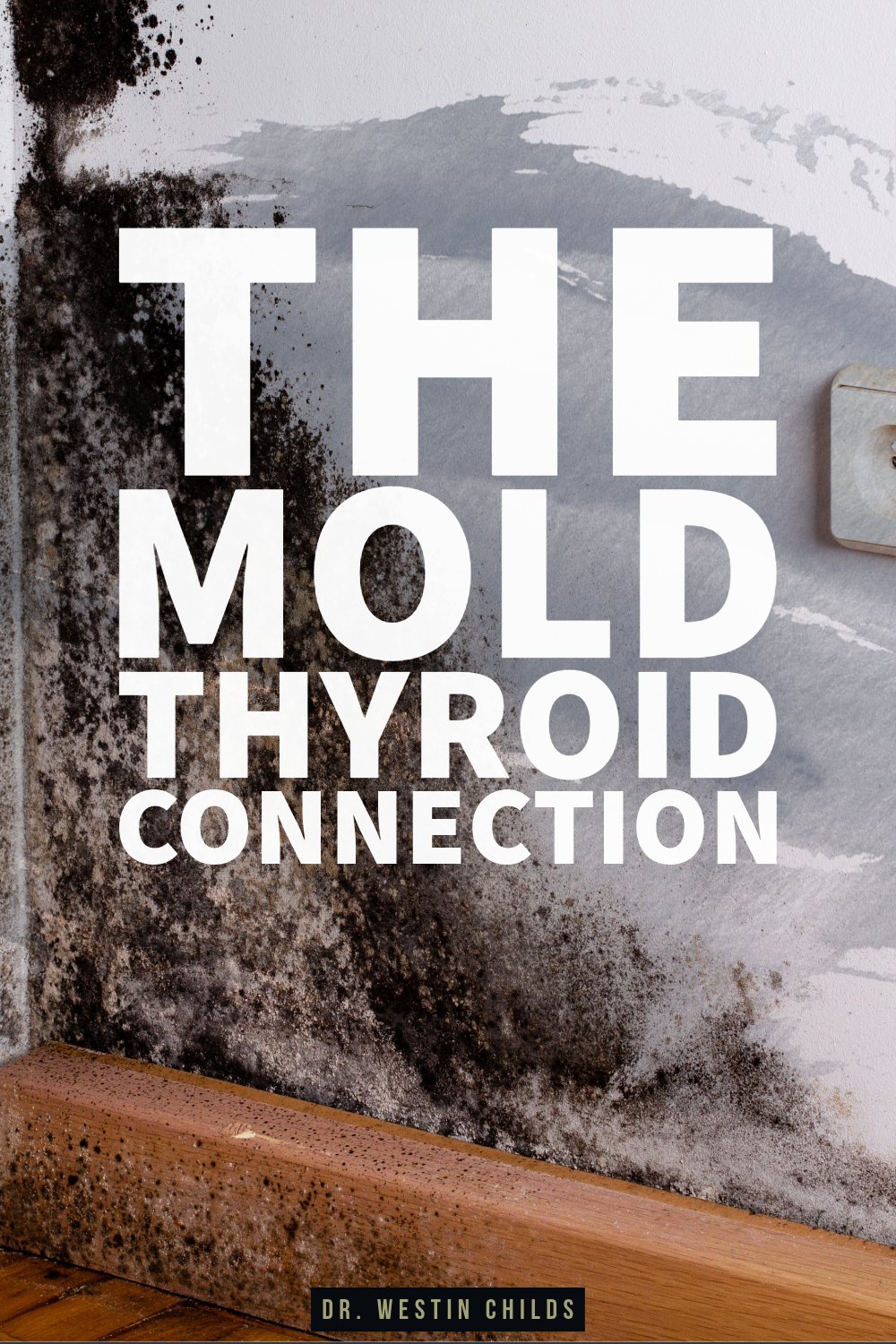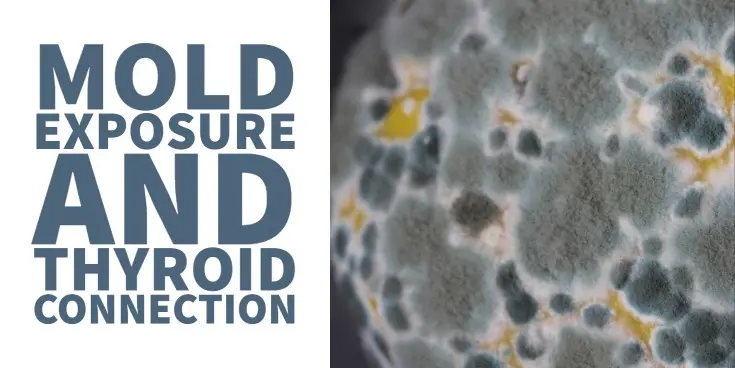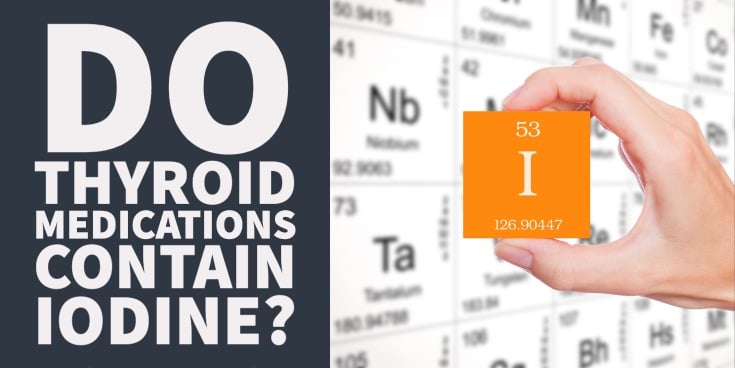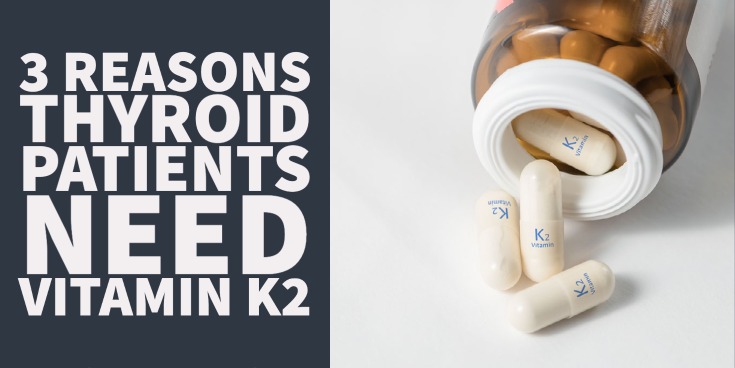It really shouldn’t surprise you to hear that mold exposure is harmful to your health.
We now have numerous studies that link exposure to the toxins from mold to many medical conditions including:
- Chronic fatigue syndrome
- Infection sensitivity
- Respiratory infections
- Immune dysfunction
- Fungal sinusitis
- Asthma
- Neuropathy
And now we can add thyroid dysfunction to that list.
A recent study from 2017 (1) has clearly shown a link between mold exposure and the development of thyroid dysfunction.
Why is this important?
Well, in a world where diagnosing thyroid problems is increasingly difficult, you as a patient should be aware of all possible causes to ensure that you get the right treatment.
We already live in a world where thyroid patients are largely unhappy with their current treatment regimens and we have veteran thyroid patients (those who have had thyroid disease for 10+ years) who report virtually NO improvement in their symptoms despite receiving thyroid medication.
Understanding this mold connection can serve to help YOU as a thyroid patient because it may help you get the right treatment.
The problem with thyroid dysfunction related to mold exposure is twofold:
#1. It causes a thyroid dysfunction lab pattern which most doctors are NOT looking for.
And…
#2. The treatment for this condition is NOT conventional (more on this below).
Let’s talk about each of these and how it relates to you…
This Damage is not Easily Detectable
As I mentioned above, diagnosing thyroid dysfunction from mold exposure is not necessarily easy to diagnose.
It is but it isn’t.
Let me explain:
Once you expand your understanding of thyroid lab testing beyond the TSH it becomes very easy.
But if you are still in the mindset (like most doctors) that the only way to test for thyroid dysfunction is by looking at the TSH then you may completely miss mold-related thyroid problems.
And the reason for this is simple…
Mold exposure results in a thyroid lab pattern known as non-thyroidal illness syndrome or NTIS for short.
NTIS can be simply understood as a set of thyroid lab changes that can be caused by multiple medical conditions.
The fact that you have this lab pattern is not as important as what caused it but you still need to understand what it looks like.
The problem with the NTIS lab pattern is that you MUST order certain tests that most doctors aren’t accustomed to ordering.
NTIS will NOT show up with standard lab testing of the TSH and free T4.
Instead, you need to order further thyroid lab tests including the free T3 and reverse T3.
NTIS shows up as the following thyroid lab pattern (2):
- Low free T3 (VERY important finding)
- Normal to high reverse T3 (usually high)
- Low to normal free T4
- Normal TSH
Hopefully, you can see the problem by looking at these labs.
It’s both possible (and probable) that your doctor could completely miss the diagnosis if they look only at the TSH and free T4.
If your TSH comes back normal and your free T4 comes back low-normal then you may be flagged as “fine” when the reality is quite the opposite.
For this reason, it is worth it to fight for the additional lab tests that I have listed above.
And don’t worry, pretty much all lab companies can order and test for them (and they are covered by insurance).
If you are having trouble getting these lab tests ordered from your doctor then you may want to print out this study and take it in.
Treating Thyroid Problems from Mold
Here’s where things get even more interesting.
The study in question showed that while many of the patients who were exposed to mold received thyroid treatment in the form of thyroid medication they didn’t actually see any improvement in their symptoms.
Put another way:
Their thyroid medication wasn’t working.
Why is this?
In order to understand why you have to understand just a few quick basics of thyroid treatment.
The patients who were NOT recovering were taking T4-only thyroid medication.
And, unfortunately, most people who have thyroid dysfunction take this type of thyroid medication.
In fact, most thyroid medications prescribed to patients contain only T4.
You know if you are taking a T4 thyroid medication if you are using levothyroxine, Synthroid, Levoxyl, or Tirosint.
These medications contain ONLY T4 thyroid hormone and these are the medications that do NOT work for those exposed to mold.

Instead, the study found that it wasn’t until patients started to take T3 thyroid hormone they actually saw some improvement.
And their improvement was so good that they actually returned to almost a normal state before their exposure.
4 patients who were on disability were actually able to return to work following treatment with T3 thyroid hormone when T4 thyroid medications failed.
So what gives? Why the difference?
It’s actually really easy to understand.
For this to make sense you only need to understand two important facts:
- #1. T4 is the INACTIVE thyroid hormone and must be activated into T3.
- #2. T3 is 300x more biologically active (3) and is really the only thyroid hormone that you should care about.
Why didn’t T4 medication work for these patients?
Probably for several reasons.
The first may have a genetic component and the second may be more related to thyroid physiology and function.
There are simply some individuals, due to their genetics, who simply don’t tolerate T4 thyroid medications.
We don’t really know exactly how many people fit into this category but estimates put it somewhere between 10% and 20% of ALL thyroid patients.
And, for those keeping track, this is a huge percentage and may explain why so many thyroid patients even without mold exposure feel crappy despite taking thyroid medications like levothyroxine!
The second reason is probably due, at least in part, to the specific problems that mold exposure causes.
It seems that mold exposure is more of a chronic condition that results in a chronic inflammatory response.
The chronic nature of this condition negatively impacts certain thyroid enzymes which are responsible for the conversion of T4 to T3.
Put in another way:
Mold toxins inhibit thyroid conversion from working properly.
This means that you can take all of the T4 thyroid medication that you want but the mold prevents your body from activating it.
It seems that the only way to bypass this problem is by providing your body with T3 directly.
By doing so you bypass the conversion process and directly provide your body with the T3 that it needs.
Other Important Therapies
While using T3 thyroid hormone is incredibly important as far as treatment goes, it’s not the only thing you should be aware of.
The patients in this study not only received T3 thyroid hormone but also received a couple of other therapies.
In addition to T3 thyroid hormone some patients also received hydrocortisone and DHEA.
Both of these are hormones (bio-identical) produced by the adrenal glands.
And even though these therapies aren’t necessary for all people with thyroid dysfunction we can still learn something very important from their use.
And that is this:
Thyroid dysfunction of any type will almost always cause adrenal-related issues.
The degree of adrenal gland dysfunction depends on the severity of your thyroid problem, how long you’ve had it, and if the problem affects your adrenal glands directly.
We know, for instance, that mold exposure probably plays a direct role in dysregulating the adrenal glands which is why these patients needed to use hydrocortisone and DHEA.
And this degree of dysfunction is typically milder in cases of run-of-the-mill hypothyroidism and Hashimoto’s.
But the lesson is still important:
You should not neglect your adrenal function and if you are treating your thyroid you should ALSO treat your adrenal glands.
There are a number of ways to do this and among my favorite are the use of adrenal adaptogens and adrenal glandulars.
The patients in this study might have benefited from these therapies but they opted for the more aggressive route of using hormones instead of botanicals and herbs.
Again, what’s important here is that you should be aware that your thyroid and adrenal glands are linked, and if you treat the one you should treat the other.
And lastly, back to the topic of mold exposure, you should be aware that removing yourself from the SOURCE of mold exposure is priority #1 in terms of treatment.
The results of this study showed that even though T3 thyroid hormone, hydrocortisone, and DHEA were helpful in making patients feel better, the patients who did the best were the ones who did these therapies PLUS removed themselves from the source of the exposure.
So keep that in mind if you believe you are currently being exposed.
Your Next Steps
What does all this information mean to you?
First off, you should be aware that mold exposure causes thyroid problems.
Secondly, you should be aware that mold exposure requires different treatments compared to regular hypothyroidism.
And thirdly, you should be aware that this condition exists because it may be playing a role in your body.
I would say this information is particularly important to ALL thyroid patients who are currently taking thyroid medication and not feeling well.
Not necessarily because it means that they are being exposed to hidden mold (although this could be true) but because you can draw important information from this study.
For starters:
The use of T3 thyroid hormone has an important role in the treatment of all thyroid conditions.
I’ve long been a huge proponent of using T3 thyroid medicines like Cytomel and liothyronine and strongly believe that MOST thyroid patients should use T3 in some form (4).
In addition, you can use this study as ammunition to help persuade your doctor to change your treatment regimen.
Doctors are always hesitant to try “new” therapies (even though T3 treatment isn’t really new) but if they know they have been tried and proven useful then they are more likely to use them.
And lastly, it just may be that mold is causing your thyroid condition and is something that you should seriously look into and consider.
Now I want to hear from you:
Does this study surprise you?
Were you aware that mold can cause thyroid problems?
Do you suspect that your thyroid problems may be caused by mold?
Do you have any other symptoms which may suggest mold exposure?
Leave your questions or comments below!
Scientific References
#1. https://www.ncbi.nlm.nih.gov/pmc/articles/PMC5545575/
#2. https://www.ncbi.nlm.nih.gov/pubmed/443685/
#3. https://www.ncbi.nlm.nih.gov/pubmed/556986
#4. https://www.ncbi.nlm.nih.gov/pmc/articles/PMC6726361/








